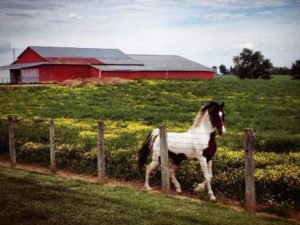Go Off the Deep End
 As children, my sister, brother, and I loved to go off the deep end of a swimming pool. We wanted to see what was under the water. Usually, we found nothing but the bottom of the pool.
As children, my sister, brother, and I loved to go off the deep end of a swimming pool. We wanted to see what was under the water. Usually, we found nothing but the bottom of the pool.
In contrast, a dive into the depths of rivers or oceans reveals a new world. We find ourselves surrounded by:
- Fish
- Rocks
- Plants
- Other natural wonders
However, a word to the wise: Learn to swim before jumping into deep water.
To go off the deep end means to act crazy.
What we do makes no sense. Our behavior may result from feeling:
- Upset
- Angry
- Excited
- Grieved
- Lovesick
We go overboard.
When we go off the deep end, we let our emotions take control.
Like a person who can’t swim but jumps into deep water, we fail to use reason. We overreact. We:
- Speak before we think
- Hurt others or ourselves
- Act before we get the facts
- Withdraw from sources of help
- Move too fast in a relationship
God gave us emotions, but God also gave us brains. Let’s use our heads for more than hat racks.
“Leave behind your foolishness and begin to live; learn how to be wise” (Proverbs 9:6 TLB).
Thanks to Janna Babak for the suggestion.
Do you have an expression you want explained or a thought about this one? If so, please comment below.
Subscribe to receive my weekly posts by email and receive a free copy of “Words of Hope for Days that Hurt.”
If you enjoyed this post, please share it with your friends.

 Please welcome my friend Kristy Robinson Horine as today’s guest writer. Kristy and I met at
Please welcome my friend Kristy Robinson Horine as today’s guest writer. Kristy and I met at 
 Perhaps the best kind of square is like the one a carpenter uses.
Perhaps the best kind of square is like the one a carpenter uses. I had never seen a snowy owl until this one showed up near our house. Northern Canada is home to snowy owls, not central Kentucky. Yet, this one decided to stop for a visit.
I had never seen a snowy owl until this one showed up near our house. Northern Canada is home to snowy owls, not central Kentucky. Yet, this one decided to stop for a visit. Let me give you a word to the wise: Don’t drive on slick roads. You don’t want to wreck your car or hurt someone. Another weather-related suggestion: Don’t skate
Let me give you a word to the wise: Don’t drive on slick roads. You don’t want to wreck your car or hurt someone. Another weather-related suggestion: Don’t skate 